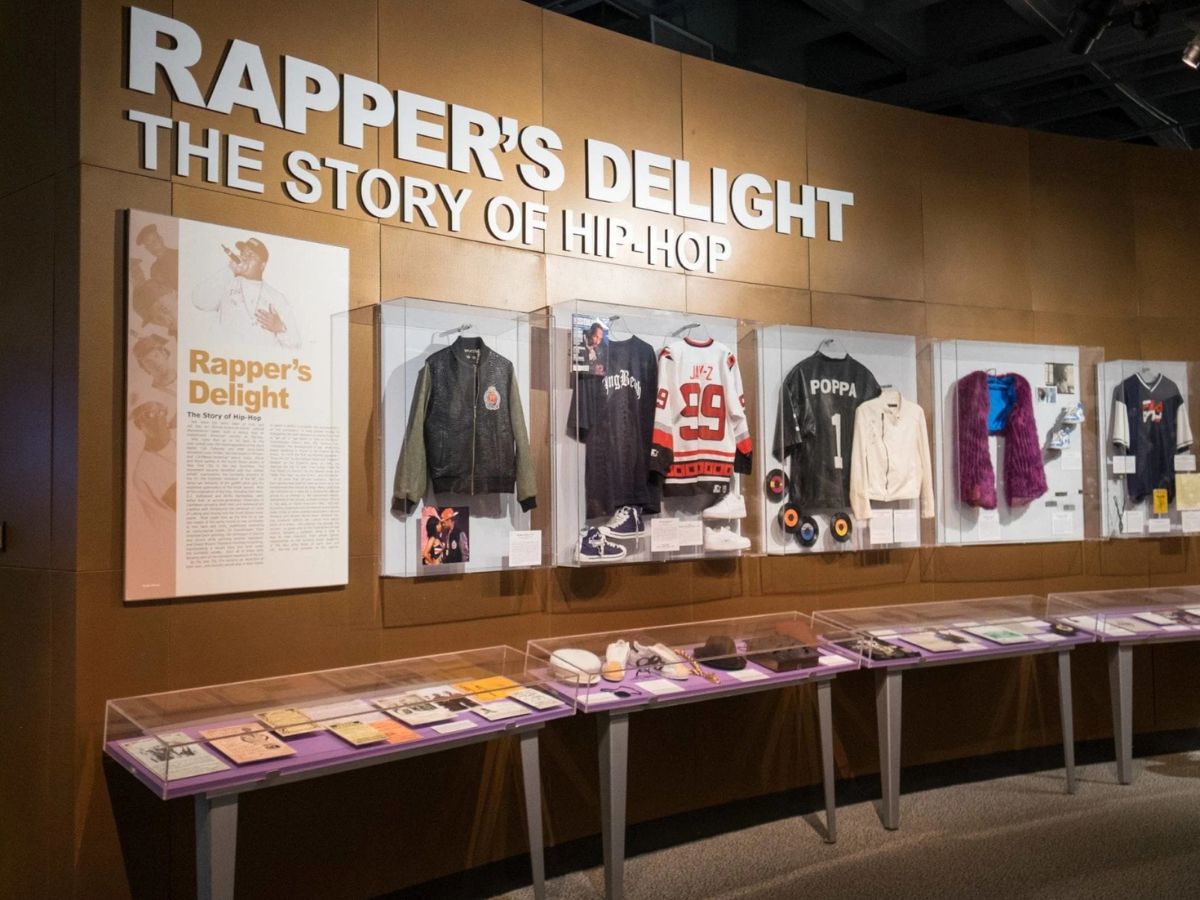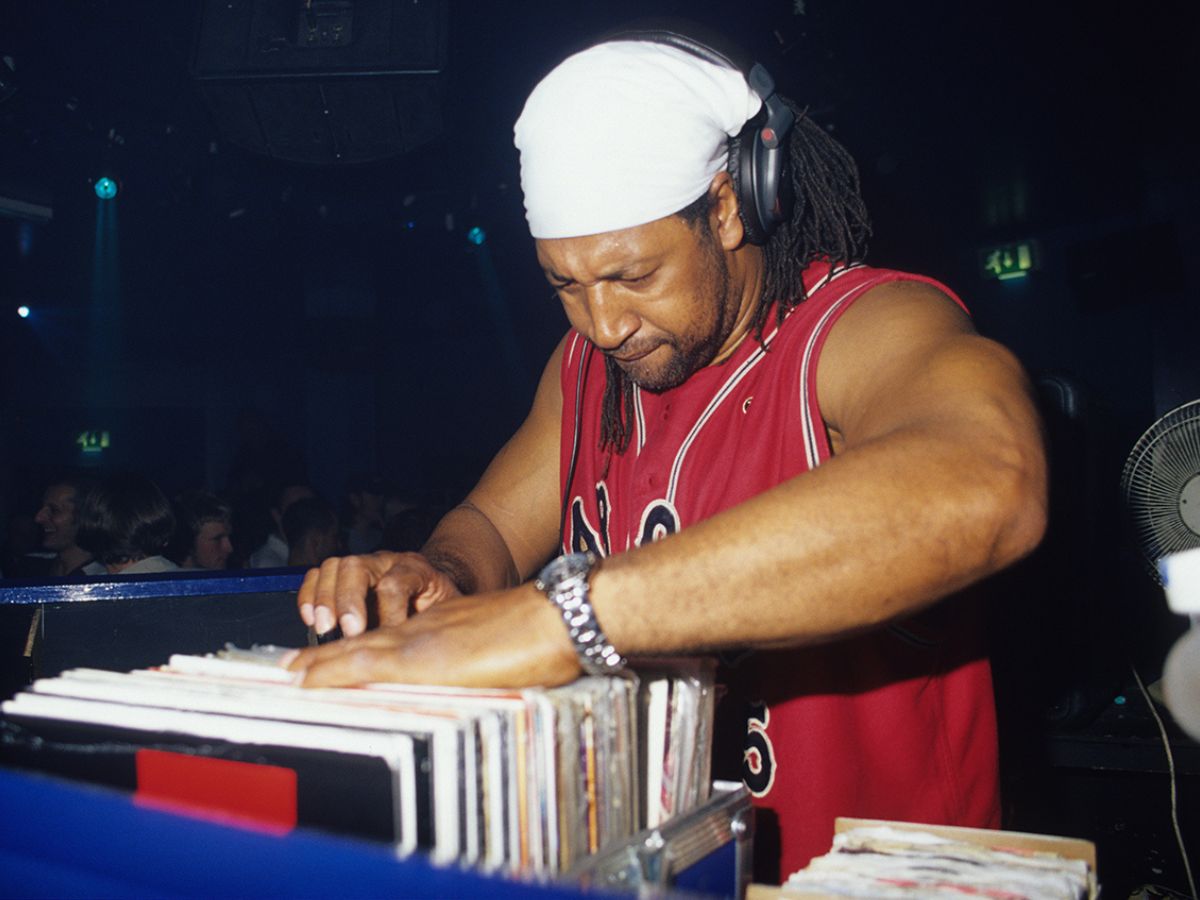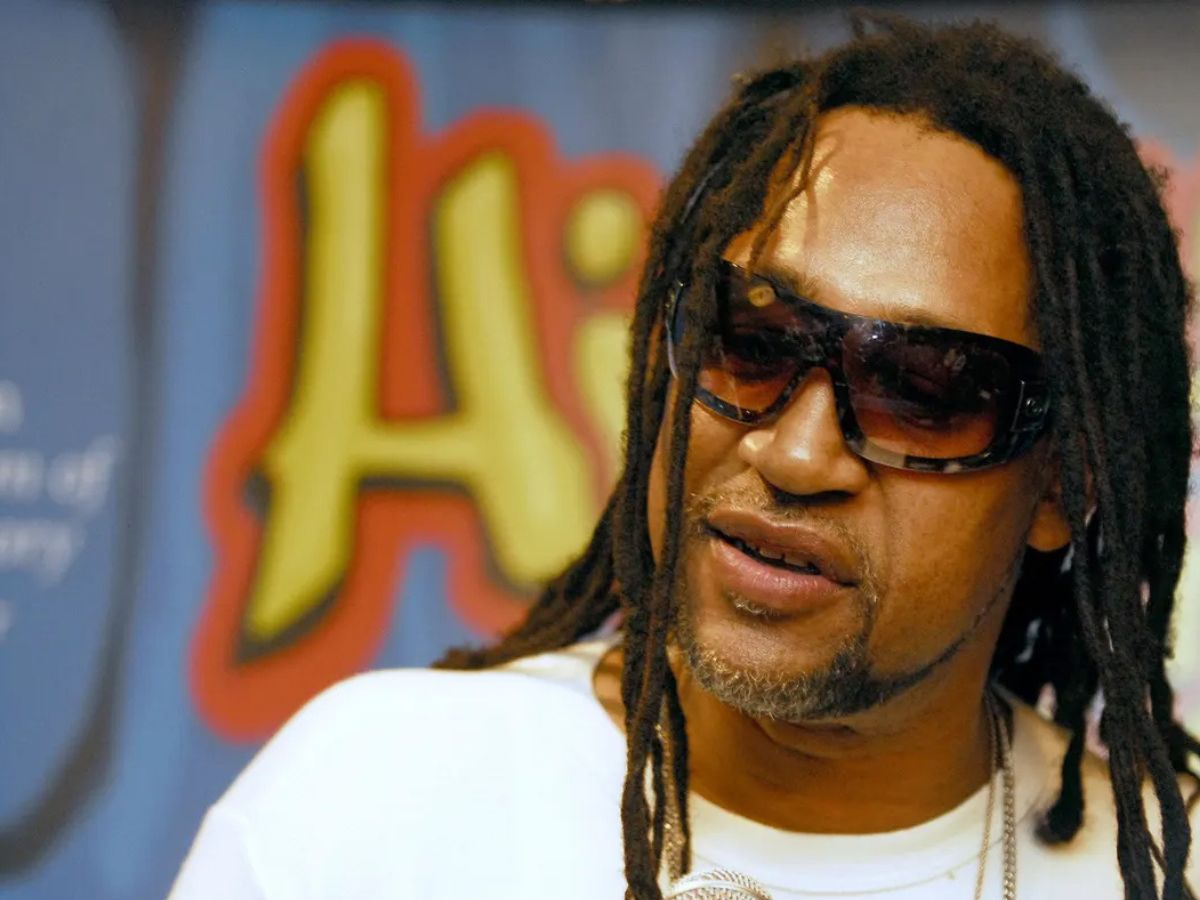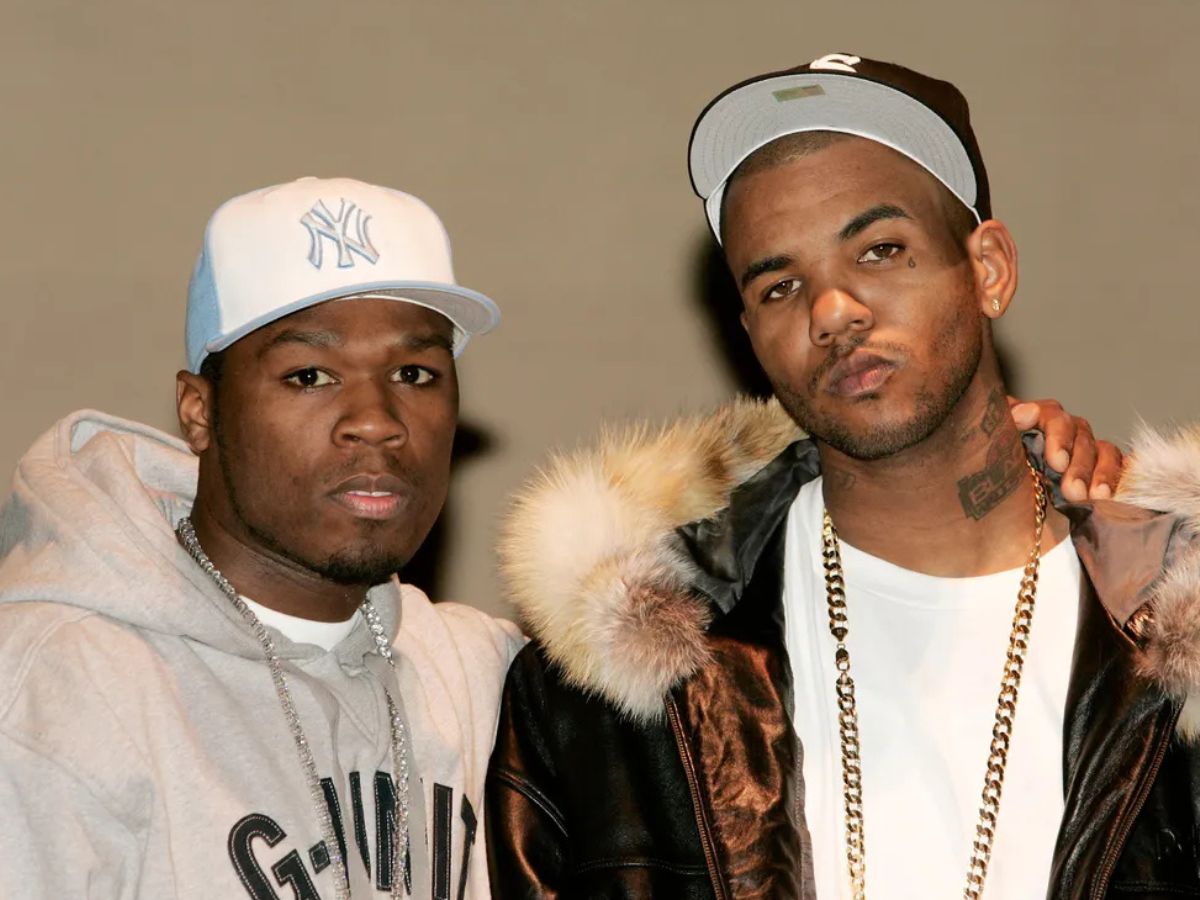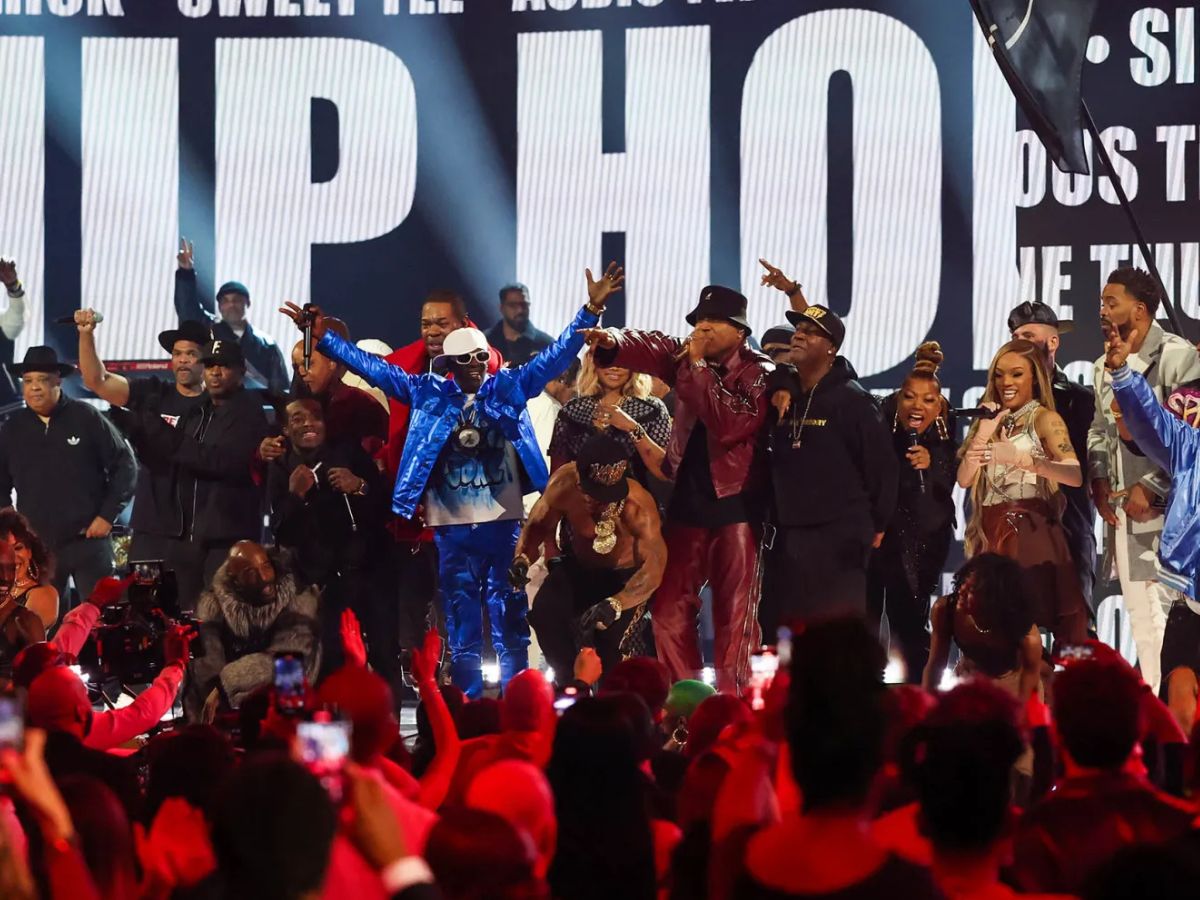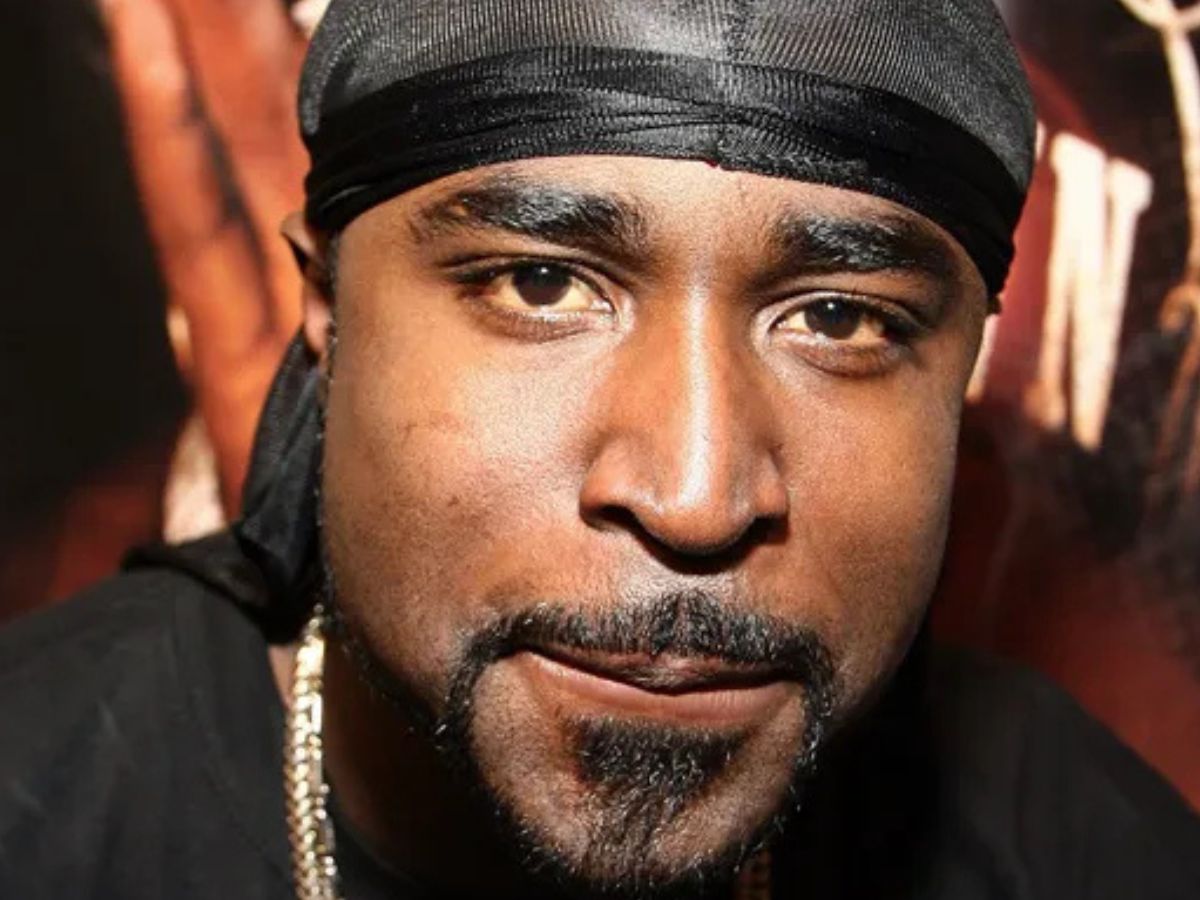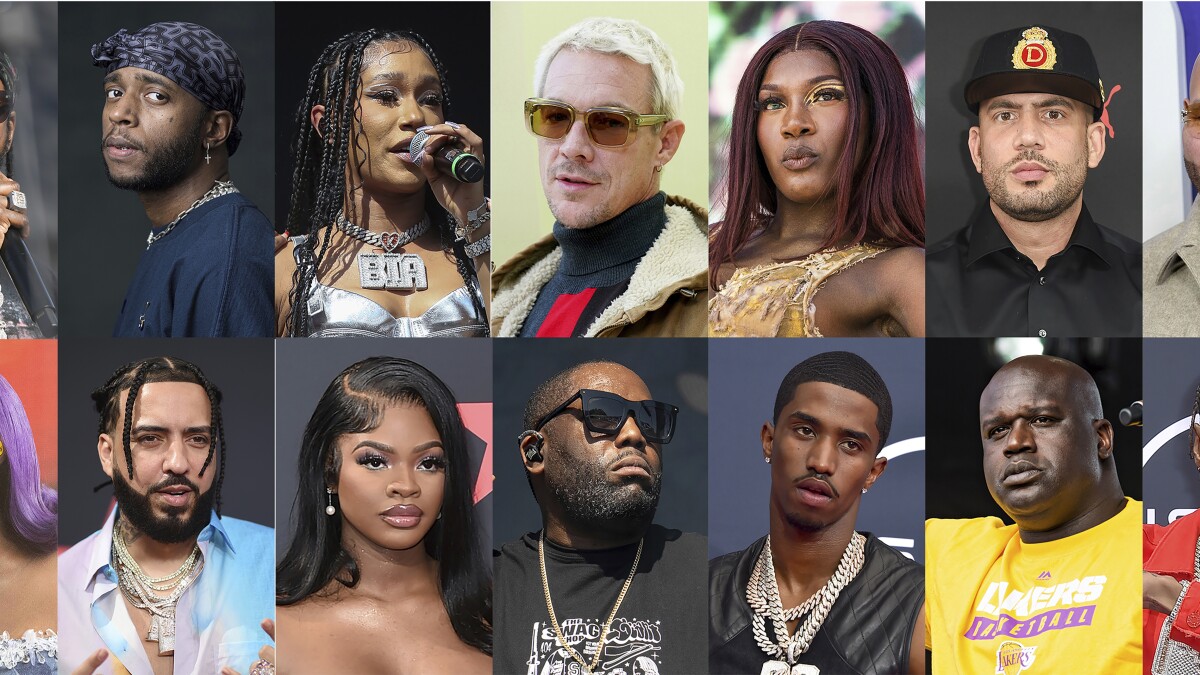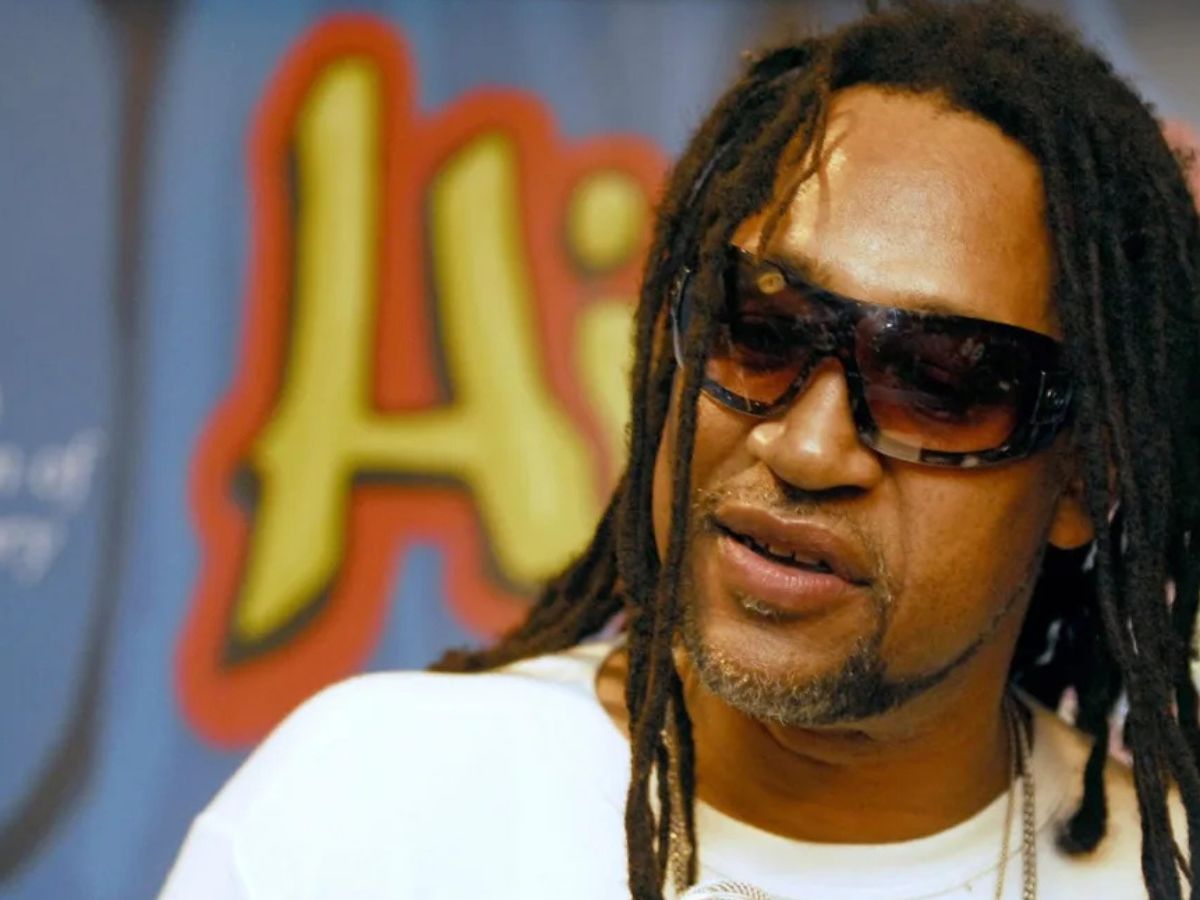

Hip Hop
Who Is The Father Of Hip Hop?
Modified: March 3, 2024
Discover the true father of Hip Hop and the origins of this iconic music genre. Unlock the history and pioneers behind the cultural phenomenon of Hip Hop.
(Many of the links in this article redirect to a specific reviewed product. Your purchase of these products through affiliate links helps to generate commission for AudioLover.com, at no extra cost. Learn more)
Table of Contents
- Introduction:
- Beginnings of Hip Hop:
- Clive Campbell: DJ Kool Herc
- Grandmaster Flash: The Turntable Wizard
- Afrika Bambaataa: The Architect of Hip Hop Culture
- The Influence of The Furious Five
- The Importance of DJ Grand Wizard Theodore
- The Contributions of DJ Afrika Islam
- The Legacy of Hip Hop Pioneers
- Conclusion:
Introduction:
Hip Hop is a cultural movement that has greatly influenced music, fashion, art, and society as a whole. It emerged in the South Bronx of New York City in the 1970s and quickly spread across the United States and eventually the world. At its core, Hip Hop is a celebration of creativity, self-expression, and the power of words.
But who exactly can be credited as the father of Hip Hop? While it is difficult to pinpoint a single individual, as the movement was born out of the collective efforts of many pioneers, several key figures played a crucial role in shaping and defining the genre. In this article, we will explore the contributions of some of these influential figures and recognize their impact on Hip Hop as we know it today.
From the birth of Hip Hop, there were various elements that came together to create the unique sound and culture. These elements include MCing (rapping), DJing, breakdancing, and graffiti art. Each of these elements played a significant role in shaping the genre and contributed to the development of Hip Hop’s distinctive style.
One of the key figures in the early days of Hip Hop was Clive Campbell, better known as DJ Kool Herc. He is widely regarded as one of the pioneers of DJing and is credited with originating the breakbeat technique by using two turntables to extend the instrumental sections of songs, allowing dancers and MCs to showcase their skills.
Another influential figure in the development of Hip Hop is Grandmaster Flash. Known as the Turntable Wizard, he is credited with popularizing the art of DJing and perfecting techniques such as scratching and mixing. His innovative approach to turntablism revolutionized the way music was performed and laid the foundation for future generations of DJs.
Afrika Bambaataa, often referred to as the Architect of Hip Hop Culture, played a crucial role in spreading the movement beyond its origin in the Bronx. He not only DJed and emceed but also formed the Universal Zulu Nation, a collective that aimed to promote peace, unity, and awareness through Hip Hop. Bambaataa’s efforts in creating a global Hip Hop community helped to cement the genre’s influence on a global scale.
Beginnings of Hip Hop:
The origins of Hip Hop can be traced back to the vibrant streets of the South Bronx in the 1970s. The borough was plagued by poverty, crime, and social unrest, but amidst the chaos, a cultural movement was born that would shape the future of music and popular culture.
In this tumultuous environment, young people in the Bronx sought an outlet for their creativity and a means of expression. They found solace in gathering at parks and community centers, where DJs would set up their turntables and play funk, soul, and disco records, creating an infectious party atmosphere.
These DJ-led parties soon became a popular pastime, with people from all walks of life coming together to dance, have fun, and escape the challenges of their daily lives. The DJs, referred to as “selectors,” discovered that the breakbeat sections of songs, where the rhythm and groove were most prominent, were the moments that sparked the most energy and excitement in the crowd.
This realization led to the development of looping and extending these breakbeat sections, allowing dancers to showcase their skills while MCs would hype up the crowd with their rhymes and lyrical improvisation. This fusion of DJing and MCing laid the foundation for what would become known as Hip Hop.
The early pioneers of Hip Hop, like DJ Kool Herc, Grandmaster Flash, and Afrika Bambaataa, began to shape the sound and style of the genre. They combined their individual talents and experimentation to create a new musical form that captured the essence of the Bronx streets.
Alongside the music, other elements of Hip Hop culture started to emerge. Graffiti artists, inspired by the vibrant colors and artistic expression of the New York City subway system, began using walls and trains as their canvas to showcase their creativity and send powerful messages. Breakdancers, or B-boys and B-girls, developed their own unique style of dance, incorporating acrobatic moves and intricate footwork.
As the movement grew, it became a voice for the marginalized and disenfranchised youth, providing a platform to speak about social issues, inequality, and the realities of life in the inner city. From its humble beginnings in the South Bronx, Hip Hop rapidly spread throughout New York City and eventually across the country, resonating with young people of all backgrounds who could relate to its message.
The beginnings of Hip Hop were characterized by grassroots innovation, creativity, and a spirit of unity. It was a movement that defied boundaries and provided a platform for self-expression and empowerment. As we delve deeper into the roots of Hip Hop, we will explore the contributions of the key figures who laid the groundwork for this global phenomenon.
Clive Campbell: DJ Kool Herc
When discussing the pioneers of Hip Hop, one cannot overlook the immense influence of Clive Campbell, better known as DJ Kool Herc. Born in Jamaica and raised in the Bronx, DJ Kool Herc is widely regarded as one of the founding fathers of Hip Hop and played a pivotal role in shaping its early sound and culture.
In the early 1970s, DJ Kool Herc began organizing parties in the recreation room of his building, 1520 Sedgwick Avenue, where he lived with his family. These parties would become legendary, attracting people from all corners of the Bronx and beyond, and serving as a breeding ground for the emergent Hip Hop movement.
One of DJ Kool Herc’s most significant contributions to Hip Hop was the development of the breakbeat technique. Recognizing that the most energetic moments during the parties occurred when the drummer of a song unleashed a solo, DJ Kool Herc started using two turntables to extend these instrumental sections, known as breakbeats, by seamlessly blending two copies of the same record.
This technique allowed breakdancers to showcase their moves and MCs to captivate the crowd with their lyrical prowess, as they would speak rhythmically over the breakbeats. DJ Kool Herc’s skillful manipulation of breakbeats laid the foundation for the birth of MCing (rapping) and solidified the importance of the DJ as the architect of the party.
Besides his technical contributions, DJ Kool Herc also brought a unique style and charisma to his DJ performances. He was known for his massive sound systems, referred to as “Herculords,” which featured towering speakers and powerful amplifiers that created a bone-shaking experience for the attendees.
Moreover, DJ Kool Herc’s parties were not just about the music; they were a celebration of the community. He created a safe and inclusive space where people from different backgrounds could come together, dance, have fun, and forget about the difficulties of everyday life.
The impact of DJ Kool Herc’s contributions to Hip Hop cannot be overstated. His innovative techniques laid the groundwork for the DJ as a central figure in the genre, and his parties served as a blueprint for future Hip Hop events. The breakbeat technique he developed became an essential element of Hip Hop production, with producers sampling and looping these breaks to create new songs and beats.
While DJ Kool Herc’s influence may not have resulted in mainstream commercial success, his legacy is felt throughout the Hip Hop community. His dedication to the craft and his ability to bring people together through music were instrumental in shaping the foundations of Hip Hop culture and establishing the DJ as a crucial element in the genre’s evolution.
Grandmaster Flash: The Turntable Wizard
When discussing the pioneers of Hip Hop, one name that stands out is Grandmaster Flash. Renowned for his exceptional turntablism skills and innovative techniques, Grandmaster Flash played a pivotal role in shaping the sound and style of the genre.
Born as Joseph Saddler in Barbados and raised in the Bronx, Grandmaster Flash began his musical journey as a young boy, experimenting with different records and turntables. He had a deep passion for understanding the inner workings of the DJ equipment and was determined to push the boundaries of what was possible.
Grandmaster Flash’s contributions to Hip Hop can be summed up in two words: technique and innovation. He pioneered many of the techniques used by DJs worldwide today, including the art of “scratching.” Scratching involves manipulating a vinyl record back and forth under a needle to create percussive and rhythmic sounds. This technique added a whole new dimension to DJ performances and became a defining element of Hip Hop music.
In addition to scratching, Grandmaster Flash perfected the technique of “beat-juggling,” which involves manipulating two records simultaneously to create seamless transitions and new rhythmic patterns. This skill showcased his meticulous attention to detail and solidified his reputation as a turntable wizard.
Grandmaster Flash’s dedication to his craft extended beyond his technical abilities. He was a true innovator, constantly pushing the boundaries and experimenting with different ways to manipulate sound. He is credited with inventing the “quick mix theory,” a method of creating smooth transitions between songs by matching their beats, tempos, and key elements.
Moreover, Grandmaster Flash was a master of reading the crowd’s energy and adapting his sets accordingly. He understood the importance of creating a seamless flow during performances, keeping the energy high and the crowd engaged. His ability to blend different genres and styles of music into a cohesive set showcased his versatility and helped popularize the DJ as a respected artist in their own right.
Beyond his technical prowess, Grandmaster Flash also made significant contributions to the development of Hip Hop as a social and cultural movement. Alongside his group, The Furious Five, he released iconic songs such as “The Message,” which addressed the realities of life in the inner city and highlighted the social injustices faced by marginalized communities. The song’s powerful lyrics and poignant message resonated with listeners worldwide and solidified Hip Hop as more than just entertainment but a powerful medium for social commentary.
Grandmaster Flash’s impact on Hip Hop cannot be overstated. His groundbreaking techniques, dedication to pushing the boundaries of what was possible on the turntables, and social consciousness have left an indelible mark on the genre. His influence can be seen in the work of countless DJs and producers who continue to draw inspiration from his innovative approach to music.
Afrika Bambaataa: The Architect of Hip Hop Culture
When discussing the pioneers of Hip Hop, one name that undoubtedly comes to mind is Afrika Bambaataa. Regarded as the Architect of Hip Hop Culture, Bambaataa played a transformative role in not only shaping the music but also championing the values and ideals that are intrinsic to the movement.
Born as Kevin Donovan in the Bronx, Bambaataa grew up immersed in the vibrant culture of the South Bronx in the 1970s. Drawing inspiration from the Black Power and Civil Rights movements, Afrika Bambaataa sought to use Hip Hop as a means to empower and unite the people of his community.
In the early days of Hip Hop, Bambaataa, like many other young people at the time, gravitated toward DJing and embracing the breakbeat culture. However, he soon realized that Hip Hop was much more than just music and dance—it was a powerful force for change.
In 1982, Bambaataa founded the Universal Zulu Nation, a collective that aimed to promote peace, unity, and awareness through Hip Hop. This organization not only brought together DJs, MCs, and dancers but also embraced other artistic elements such as graffiti art and knowledge of self.
Under Bambaataa’s leadership, the Universal Zulu Nation fostered a sense of community and provided a platform for young people to express themselves creatively. It became a safe haven where individuals could come together, share their talents, and engage in meaningful dialogues about societal issues.
Furthermore, Bambaataa’s influence can be seen in his musical contributions and his ability to fuse different genres to create something entirely new. He incorporated a wide range of musical styles, including funk, soul, rock, and electronic music, into his DJ sets, challenging the boundaries of what was deemed “Hip Hop” at the time.
One of Bambaataa’s most iconic tracks, “Planet Rock,” showcased his innovative approach to music production. The song combined elements of Kraftwerk’s electronic sounds with the rhythm and energy of Hip Hop, creating a groundbreaking fusion that propelled the genre into new territories.
Beyond his musical endeavors, Bambaataa also used his platform to address social and political issues. He became an advocate for peace, speaking out against violence, drug abuse, and gang culture. His message of unity and love resonated with audiences, inspiring a generation of Hip Hop artists to use their platform for positive change.
Afrika Bambaataa’s influence on Hip Hop reaches far beyond the music itself. His dedication to building a sense of unity and empowerment within the community, his ability to blend different musical genres, and his commitment to social activism have shaped the very foundations of Hip Hop culture.
In recognition of his immense contributions, Afrika Bambaataa was inducted into the Rock and Roll Hall of Fame in 2007, solidifying his status as an iconic figure in music history. His legacy continues to inspire artists and enthusiasts around the world, reminding us of the transformative power of Hip Hop and its ability to effect positive change.
The Influence of The Furious Five
When discussing the pioneers of Hip Hop, it is impossible to overlook the immense influence of The Furious Five. Comprising members Grandmaster Melle Mel, Scorpio, Cowboy, Rahiem, and Kid Creole, The Furious Five played a pivotal role in shaping the sound and lyrical style of early Hip Hop.
With their bold and insightful lyrics, The Furious Five brought a new level of storytelling and social commentary to the genre. They tackled issues such as poverty, social injustice, and the struggles of everyday life in their lyrics, giving voice to the experiences of marginalized communities.
One of their most iconic and influential tracks is “The Message,” released in 1982. Produced by Sylvia Robinson and featuring Grandmaster Flash, the song shed light on the harsh realities faced by many in inner-city America. Its poignant lyrics, delivered by Grandmaster Melle Mel, resonated with listeners around the world and elevated Hip Hop to a powerful form of social commentary.
At a time when party anthems and light-hearted lyrics dominated the Hip Hop scene, The Furious Five’s willingness to address substantive issues set them apart. Their songs acted as a reflection of the social ills and challenges faced by urban communities, providing a voice to those who felt unheard.
Moreover, The Furious Five’s lyrical prowess and charismatic performances helped solidify the role of the MC (master of ceremonies) within the Hip Hop culture. They honed their skills in freestyling, displaying impressive wordplay and rhythmic delivery that captivated audiences and set a new standard for lyrical excellence.
Furthermore, their collaboration with Grandmaster Flash showcased the seamless fusion of DJing and MCing, creating a synergy that became the hallmark of Hip Hop performances. The combination of Grandmaster Flash’s innovative DJ techniques and The Furious Five’s captivating rhymes resulted in groundbreaking live shows that energized and inspired audiences.
Aside from their musical accomplishments, The Furious Five’s influence can also be seen in their fashion choices. They embraced the flamboyance and individuality of the early Hip Hop fashion scene, rocking colorful and elaborate outfits that became synonymous with the genre. Their style choices, along with their charismatic stage presence, contributed to the visual spectacle that was integral to early Hip Hop performances.
The impact of The Furious Five on the Hip Hop genre reverberates to this day. Their lyrical and musical contributions laid the foundation for future generations of rappers, establishing a legacy of conscious and socially aware Hip Hop. They not only shaped the art form but also helped expand its reach beyond the Bronx, paving the way for Hip Hop to become a global cultural phenomenon.
The Furious Five’s influence can be heard in the works of countless artists who continue to draw inspiration from their innovative approach to music and lyrics. Their contributions to Hip Hop culture remain timeless, reminding us of the genre’s power to inform, inspire, and ignite change.
The Importance of DJ Grand Wizard Theodore
When discussing the pioneers of Hip Hop, one figure who often stands out is DJ Grand Wizard Theodore. His contributions to DJing and his innovative techniques have had a profound impact on the development and evolution of Hip Hop music.
Born and raised in the Bronx, DJ Grand Wizard Theodore honed his skills during the formative years of Hip Hop in the 1970s. He was a member of the legendary hip hop group, The L Brothers, and became known for his exceptional scratching abilities and turntable techniques.
One of the most significant contributions of DJ Grand Wizard Theodore to Hip Hop was his creation of the scratch. Legend has it that while practicing in his bedroom, Theodore accidentally let the needle slide across a record, producing a unique sound. Intrigued by this unexpected sound, he began experimenting and refining the technique, ultimately developing what would become one of the most iconic elements of Hip Hop.
The scratch quickly became a fundamental tool for DJs, allowing them to create rhythmic and percussive sounds by manipulating the vinyl records on their turntables. This technique added a new level of creativity and expression to DJ performances, enabling DJs to infuse their sets with their unique style and signature sound.
Before the scratch, DJs primarily focused on transitioning between songs seamlessly. However, Theodore’s innovation expanded the possibilities of what DJs could do with their turntables, elevating the art of DJing to new heights.
Besides his technical contributions, DJ Grand Wizard Theodore played a crucial role in popularizing DJ battles, which became a staple of Hip Hop culture. These battles showcased the skills and creativity of DJs, as they competed to outperform one another and push the boundaries of what was possible on the turntables.
DJ Grand Wizard Theodore’s exceptional talent and innovative techniques paved the way for future generations of DJs to push the boundaries of their craft. His influence can be seen in the work of countless DJs, producers, and turntablists who continue to draw inspiration from his groundbreaking contributions.
Beyond his technical expertise, Theodore’s impact on Hip Hop extends to his role as an ambassador and mentor. He dedicated himself to sharing his knowledge and skills with aspiring DJs, passing down the traditions and techniques of DJing to future generations.
Today, DJ Grand Wizard Theodore’s legacy remains strong. His contributions to the art of DJing and his innovation with the scratch technique have solidified him as a true pioneer of Hip Hop. His influence can be heard in the work of DJs and producers worldwide, as they continue to build upon his foundation and expand the boundaries of what is possible in the realm of Hip Hop music.
The Contributions of DJ Afrika Islam
When discussing the pioneers of Hip Hop, DJ Afrika Islam is a name that deserves recognition. Born as Kevin Donovan, he began his journey in the early days of Hip Hop as a member of the Zulu Nation and went on to become a key figure in shaping the genre.
DJ Afrika Islam’s contributions to Hip Hop are multi-faceted and diverse. He is known for his exceptional DJing skills, his production work, and his efforts in spreading the knowledge and values of Hip Hop culture.
As a DJ, Afrika Islam gained a reputation for his dynamic and crowd-pleasing performances. He possessed a keen sense of mixing and blending different genres, seamlessly transitioning between tracks and creating an electrifying atmosphere at parties and events.
Afrika Islam’s production work is another significant aspect of his contributions to Hip Hop. He worked closely with artists such as Ice-T and helped shape the sound of early West Coast Hip Hop. His production skills added depth and innovation to the music, pushing the boundaries of what was thought possible in the genre.
Besides his technical skills, Afrika Islam played a vital role in spreading the knowledge and values of Hip Hop culture. He worked alongside Afrika Bambaataa in educating young people about the origins, history, and principles of Hip Hop through the Universal Zulu Nation. Their efforts helped create a deeper understanding and appreciation for the cultural roots of the genre.
Afrika Islam also emphasized the unity and peace-building aspects of Hip Hop. He actively worked to bridge gaps between different groups and communities, using the platform of Hip Hop to promote harmony and understanding.
Additionally, DJ Afrika Islam was instrumental in expanding the reach of Hip Hop beyond the United States. He toured internationally, introducing the sounds of Hip Hop to audiences around the world. His travels and collaborations with artists from various countries helped to globalize the genre and establish Hip Hop as a cultural force on a global scale.
Afrika Islam’s contributions to Hip Hop extend beyond his technical skills and production work. He played a role in expanding the culture and philosophy of Hip Hop, spreading its positive impact and encouraging others to embrace its principles of peace, love, unity, and having fun.
Today, DJ Afrika Islam’s influence can be felt in the continued growth and popularity of Hip Hop worldwide. His dedication to the craft, his production work, and his efforts in educating and spreading the values of Hip Hop culture have helped shape the genre into what it is today.
We must recognize DJ Afrika Islam’s significant contributions to Hip Hop as we continue to appreciate and celebrate the rich history and culture of this global phenomenon.
The Legacy of Hip Hop Pioneers
The pioneers of Hip Hop laid the foundation for a cultural movement that transcends music and has had a profound impact on society. Their contributions, innovation, and resilience have shaped the genre and left an indelible mark on popular culture. Their legacy continues to inspire and influence artists and enthusiasts around the world.
These pioneers, such as DJ Kool Herc, Grandmaster Flash, Afrika Bambaataa, The Furious Five, DJ Grand Wizard Theodore, and DJ Afrika Islam, brought their unique talents and visions to the forefront, creating a platform for self-expression, social commentary, and artistic innovation.
Their technical abilities, such as DJ Kool Herc’s breakbeat technique and Grandmaster Flash’s turntablism skills, pushed the boundaries of what was possible on the turntables, revolutionizing the art of DJing. They introduced new techniques like scratching, beat-juggling, and quick mixing that became hallmarks of Hip Hop DJ performances.
But their contributions extended far beyond the music itself. The pioneers of Hip Hop brought storytelling, lyricism, and social consciousness to the forefront of the genre. The Furious Five, in particular, tackled social issues and created songs like “The Message,” which elevated Hip Hop from a mere form of entertainment to a powerful medium for addressing the realities of life in marginalized communities.
Furthermore, these pioneers nurtured a sense of community and unity within the Hip Hop culture. Afrika Bambaataa’s founding of the Universal Zulu Nation and DJ Afrika Islam’s efforts to spread the knowledge and values of Hip Hop helped create a sense of belonging and purpose among young people. They emphasized the principles of peace, love, unity, and having fun, fostering an inclusive and positive environment that transcended race, background, and socioeconomic status.
The legacy of Hip Hop pioneers lives on through the countless artists they influenced and the music they created. Their innovations and contributions are evident in the work of modern-day DJs, producers, and MCs. They have become sources of inspiration and guidance for aspiring artists, encouraging them to embrace their creativity, push boundaries, and use their platform for social change.
Moreover, the impact of the pioneers extends beyond the music industry. Hip Hop has permeated various aspects of popular culture, from fashion and art to film and advertising. The pioneers’ unique style and individuality helped establish Hip Hop as a vibrant and influential cultural force.
As the Hip Hop genre continues to evolve, it is crucial to recognize and honor the contributions of these pioneers. Their groundbreaking work paved the way for the thriving and diverse Hip Hop landscape we see today. It is through their efforts that we can appreciate the transformative power of Hip Hop, its ability to give a voice to the voiceless, and its capacity to break down societal barriers.
The legacy of Hip Hop pioneers serves as a reminder to future generations of artists and enthusiasts to always push boundaries, challenge conventions, and use their art as a force for positive change. Their influence will forever be woven into the fabric of Hip Hop culture, inspiring generations to come.
Conclusion:
The pioneers of Hip Hop have left an indelible mark on music, art, and society. Their contributions, innovation, and perseverance have shaped Hip Hop into a global cultural phenomenon that continues to captivate and inspire millions around the world.
From the humble beginnings in the South Bronx, Hip Hop has evolved into a powerful platform for self-expression, social commentary, and artistic innovation. The talents and visions of figures like DJ Kool Herc, Grandmaster Flash, Afrika Bambaataa, The Furious Five, DJ Grand Wizard Theodore, and DJ Afrika Islam paved the way for the genre’s growth and expansion.
These pioneers introduced new techniques, such as scratching, beat-juggling, and quick mixing, elevating DJ performances to an art form in their own right. They embraced storytelling, lyricism, and social consciousness, addressing the realities and struggles faced by marginalized communities.
Furthermore, the legacy of these pioneers extends beyond the music. They fostered a sense of community and unity within the Hip Hop culture, emphasizing core values such as peace, love, unity, and having fun. They created safe spaces for expression, fostering inclusivity and empowering young people to use their voices to effect positive change.
The influence of Hip Hop pioneers can be seen and felt in the work of countless artists, producers, and enthusiasts who continue to push the boundaries of the genre. They have established Hip Hop as more than just a form of entertainment, but as a powerful cultural force that is capable of sparking social awareness and inspiring movements for justice.
As we move forward, it is crucial to remember and honor the contributions of these pioneers. Their dedication, creativity, and resilience serve as reminders to embrace our own artistic expression, to challenge the status quo, and to use our talents to make a positive impact on the world.
The legacy of Hip Hop pioneers serves as a beacon of inspiration for aspiring artists, reminding them to stay true to their craft, to defy expectations, and to use their art as a force for change.
In conclusion, the pioneers of Hip Hop have laid a solid foundation upon which a vibrant and diverse culture has flourished. Their influence and contributions continue to shape the Hip Hop landscape, ensuring that their legacy remains strong for generations to come.


